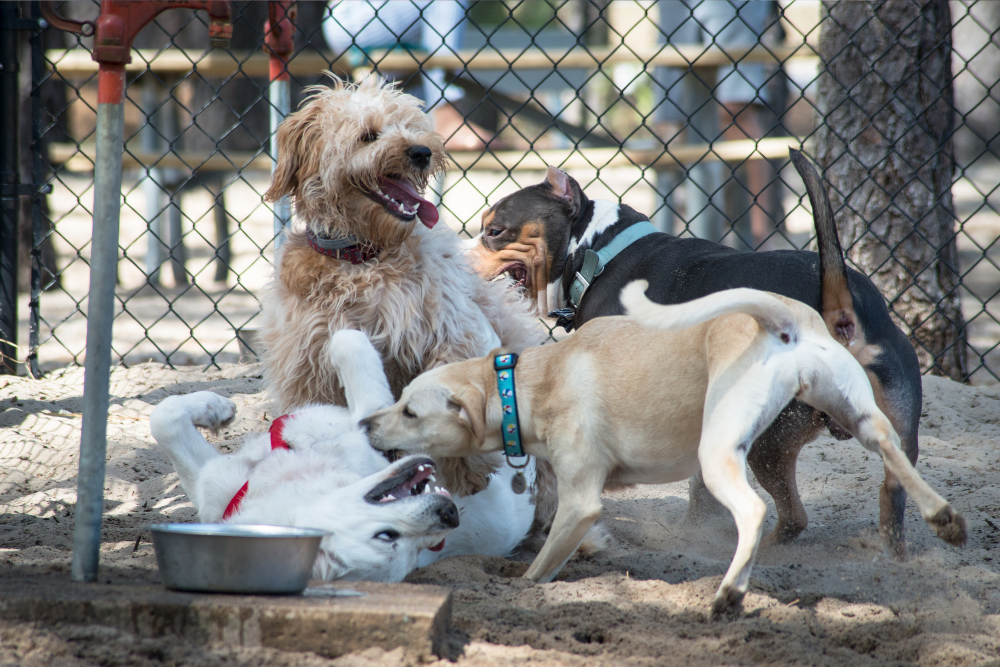You understand that it’s your responsibility as a responsible dog owner to give your dogs the best care possible. Those comprise essential vaccinations that shield your dog from infections and serious diseases. However, given the variety of vaccines and the skepticism surrounding them, it makes sense that you might be wondering, “What vaccines do dogs need annually?”
Naturally, following my instructions is the best way to ensure that your dog receives his vaccinations on time. Therefore, I am here to give you a response to that difficult question.
Which Vaccination Shots Do Dogs Need Each Year?
Core vaccinations and recommended (or non-core) vaccinations are the two categories of annual shots for adult dogs.
Core vaccinations for most dogs include:
The Essential Package from Essentials PetCare includes all of these.
Non-core vaccinations that our doctors recommend are:
Why would your dog need a non-core vaccination?

This depends on lifestyle:
Typically, dog boarding facilities will list the vaccinations that dogs must have in order to stay there. Additionally, your veterinarian can provide advice on what is required to keep your dog safe in these circumstances.
The majority of these subsequent shots for your dog are thought of as boosters after the initial puppy vaccinations. As a result, they are typically administered less frequently, typically every three years. The non-core vaccines are the exception; they must be administered at least once a year to remain effective. Your pet needs booster shots because skipping one reduces the effectiveness of the initial vaccination.
Titer testing determines the continuing immunity from a vaccination shot. You might receive a titer test one year after receiving a distemper vaccination to determine how many antibodies are still present. In some circumstances, veterinarians may advise titer testing to confirm a pet’s immunity. However, the test results are not always conclusive. Positive titer tests do not always imply that your pet is immune.
You might wonder if doing this will help you extend the interval between booster treatments, but this is not a very smart move. Why? Because committing to consistent titer testing is more expensive overall than adhering to the regular booster schedule.
How does that work out in terms of actual costs? Each titer test costs between $100 and 300 and each covers a different disease. The American Animal Hospital Association advises adult dogs who have finished their puppy series to stay on a regular 3-year vaccination schedule, followed by an initial booster one year later. Testing for this every year becomes significantly more expensive than maintaining this schedule. Titers can only be done for core vaccines, with the exception of rabies.
More significant than vaccinations is the physical examination your veterinarian conducts. In a recent study on longevity, subclinical diseases were discovered in 16 percent of dogs and 20 percent of cats. These diseases were identified through an examination and routine lab work.
Welborn appreciates when pet owners and veterinarians collaborate to conduct an annual lifestyle risk assessment. This entails evaluating the animal’s environment and habits to determine whether it requires non-core vaccinations for diseases like feline leukemia, Lyme disease, or canine cough (most likely not, unless the exposure risk is high), as well as whether dietary or exercise modifications are necessary to prevent obesity and its associated issues like arthritis and diabetes.
Over the years, vaccinations have saved the lives of many animals, but they are not without risk. The majority of shots that have previously been administered annually should now be given less frequently, according to veterinary experts, as new research suggests that immunity may last longer than previously believed.
In light of this, vaccine manufacturers arbitrarily suggested yearly vaccinations, and the majority of veterinarians agreed out of concern for potential liability issues.
If your veterinarian wants to vaccinate you because a titer level is “too low,” charges $50 or more for them, or claims that titers are too expensive to perform, you might want to change veterinarians. ”.
What vaccines are included in a dog vaccination schedule?
Veterinarians will typically categorize vaccines as either core or non-core. According to local law, pet owners must ensure that their animals receive the necessary vaccinations. These vaccines protect your dog against:
DA2PP, a combination vaccine that also protects against parainfluenza, is typically used to administer the vaccination for canine distemper, parvovirus, and adenovirus.
Your veterinarian might suggest additional non-core vaccinations if your dog spends a lot of time outside or around other animals in a dog park or doggy daycare. Common non-core vaccines protect against:
Your veterinarian will probably question you during your dog’s annual wellness exam to ascertain the likelihood that your dog will contract these diseases.
FAQ
What happens if I don’t vaccinate my dog every year?
Your pets run the risk of contracting diseases if you don’t protect them with vaccines. They would only deteriorate because they lack activated antibodies to fight off infections. Fatal results usually follow.
What vaccines do dogs need yearly?
Canine parvovirus, canine distemper, canine hepatitis, and rabies vaccines are the four main canine vaccines.
At what age do you stop vaccinating your dog?
A series of vaccinations for puppies should begin between six and eight weeks of age. A minimum of three vaccinations should be given by a veterinarian at intervals of three to four weeks. 16 weeks of age should be the recommended age to give the final dose.
How often should dogs get vaccinated?
Core vaccines are required for all dogs and puppies. At 8, 10, and 12 weeks of age, a core combination vaccine should be administered, and then it should be repeated annually. After a dog reaches the age of two, some veterinarians may switch to a three-year vaccination schedule.